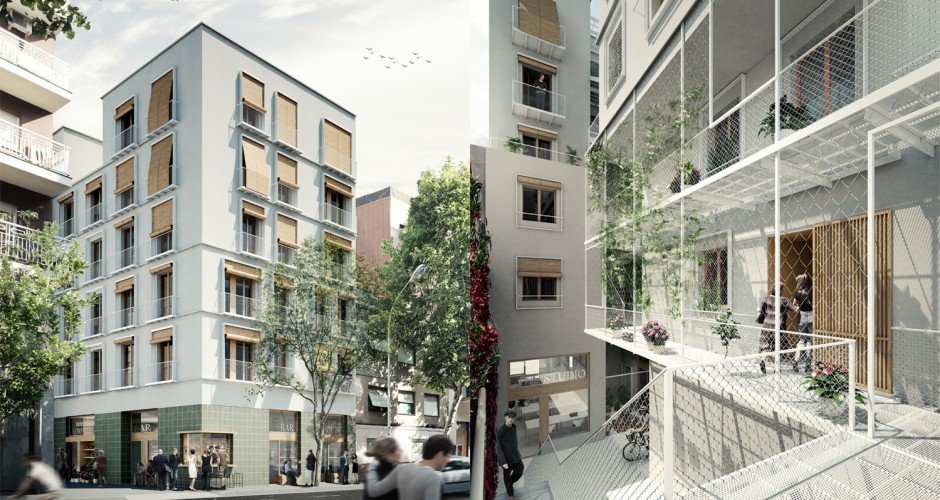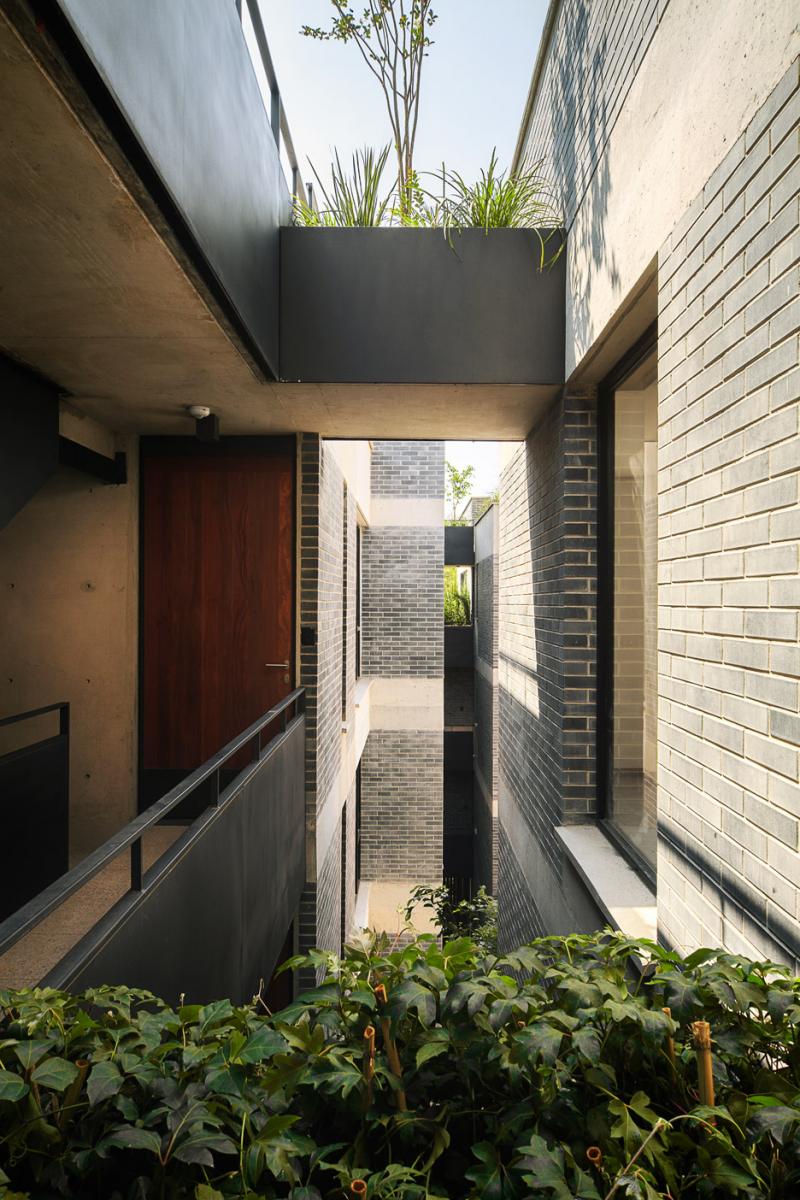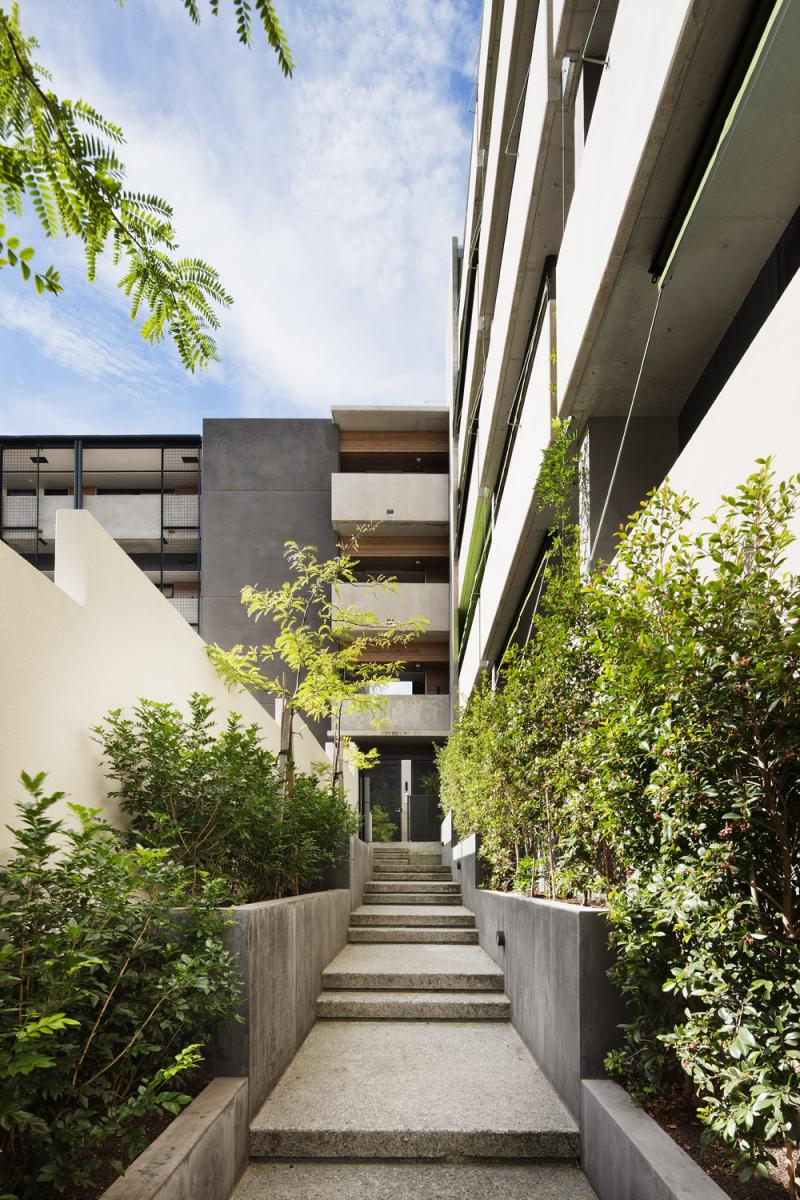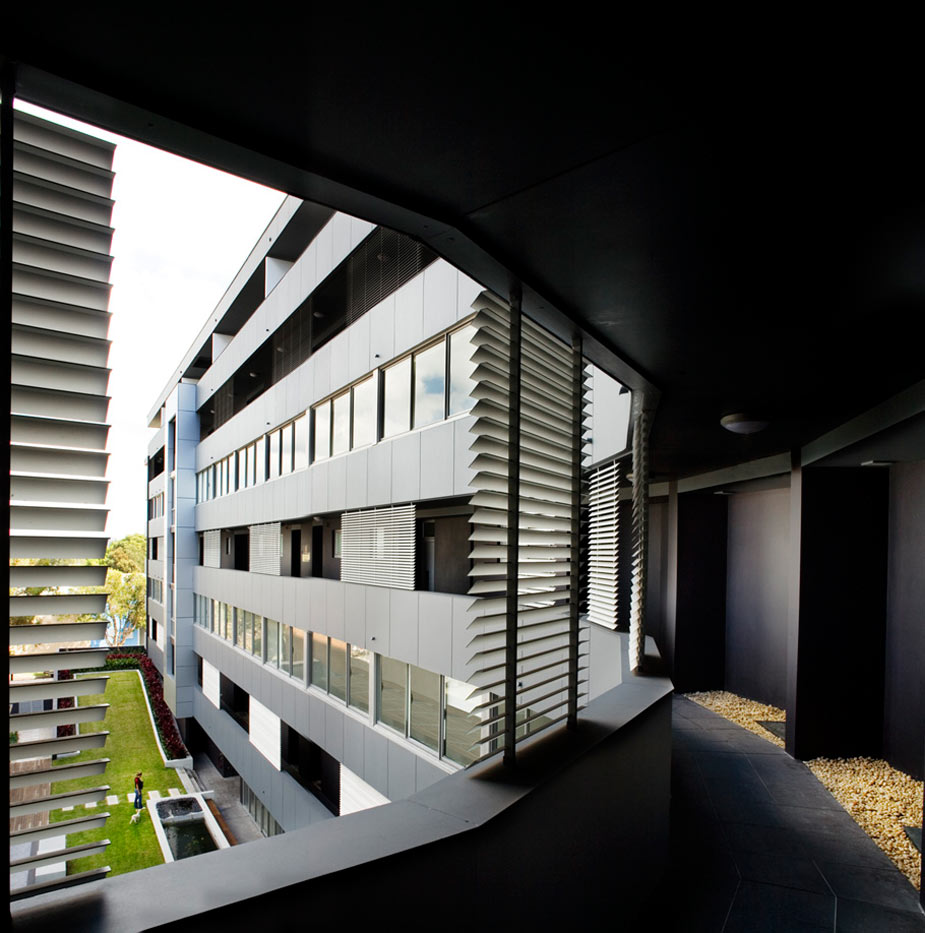
THROUGHOUT THE HISTORY OF URBAN ARCHITECTURE, COURTYARDS AND OPEN, COVERED CORRIDORS HAVE ENHANCED THE LIVABILITY OF MULTIRESIDENTIAL BUILDINGS IN COUNTRIES AS DIVERSE AS ARGENTINA, IRAN, SINGAPORE, AND MEXICO.
By definition, an open, covered corridor is a single-loaded passage—meaning it has apartments on one side only—with a roof for protection from the sun and rain. When partnered with operable windows on an opposite elevation and sustainable features—such as balanced height-to-depth ratios and orientation to capture prevailing breezes—an open corridor is an effective way of providing apartments with cross-flow ventilation and shade. The feature also means many apartments have internal entrances, which has security benefits. Topmost image: Apartment building in Barcelona by Cierto Estudio Architects.
While natural ventilation is necessary and desirable for occupant comfort and well-being, it is also vital and required for moisture control, VOC reduction, and optimal performance of exhaust systems.

Photo by Yoshihiro Koitani.
Up until the invention of air-conditioning at the beginning of the 20th century, bioclimatic architecture—meaning passive building design tailored to climate—was the norm rather than the exception in many cities around the word with significant climate heat for, at least, part of the year. But with the growth in popularity and accessibility of mechanical heating and cooling systems, apartment design priorities began to change.
Further, when a boom in multiresidential construction swept Australia’s major cities in the early 1990s, after a 20-year hiatus, more and more power fell to the hands of international developers. And for many of the latter, apartments were simply assets and commodities rather than future homes.
So with these drivers, and the idea of energy efficiency only just creeping into the collective consciousness, the subsequent two decades saw well-sealed and air-conditioned spaces off double-loaded corridors become the dominant model, and those featuring natural airflow and the methods for creating it the exceptional one. (Installing an open corridor requires a developer to forgo precious net saleable area for vendor comfort, after all).
The tide is, however, turning as tides always do. And open corridors are back in the design toolbox of some Sydney and Melbourne architects who maintain that sustainability, quality design, and business sense are perfectly compatible.

The Frank Stanisic-designed apartment building, Coda, Sydney; Candalepas Associates’ Waterloo Street, in the same city; and imminent Nightingale projects, by Breathe Architecture et al., across the country, are three more prominent examples.
Most of the latter projects incorporate open-air corridors and common areas at site centres, while Coda’s “breathing and tempered environment for living” is a consequence of the corridors approaching apartments being left open to the air, and the breezeway running between its top apartments. Coda’s open corridors, together with its outer skin of adjustable windows and shutters, create excellent natural through-ventilation and minimise or negate the need for air conditioning in each of its 44 apartments.

And in keeping with Le Corbusier’s “two-storey crossover apartment” tradition, exemplified in his iconic Unite d’habitation development in Marseille, each double-storey apartment stretches from one side of the building to the other, further enhancing opportunities for cross-ventilation.
Farther afield, T3 Architecture Asia designs comfortable homes in Ho Chi Minh that have no need for air conditioning. The World Health Organisation partner has discovered that open, covered corridors together with ventilated roofs, natural construction materials, and glazing oriented towards breezes and away from peak sunlight create homes that can maintain indoor temperatures at up to 22 degrees below external temperatures.
“If you work with the main wind stream and have smart sun protection, you can do it—you really can design buildings that need no air-conditioning in a hot place like Vietnam,” T3’s Charles Gallavardin told CNN.
In addition to enhanced livability, open corridors’ cooling and natural ventilation benefits, in turn, reduce the need for mechanical air-conditioning, which accounts for around 40% of the total energy consumption of buildings around the world.
The revival of features, such as covered open corridors, therefore, has potential to play a significant role in the fight against climate change while advancing innovation and livability in multiresidential design. 
This is article was originally published by Open Journal and reproduced with their permission. Read the original article here.

